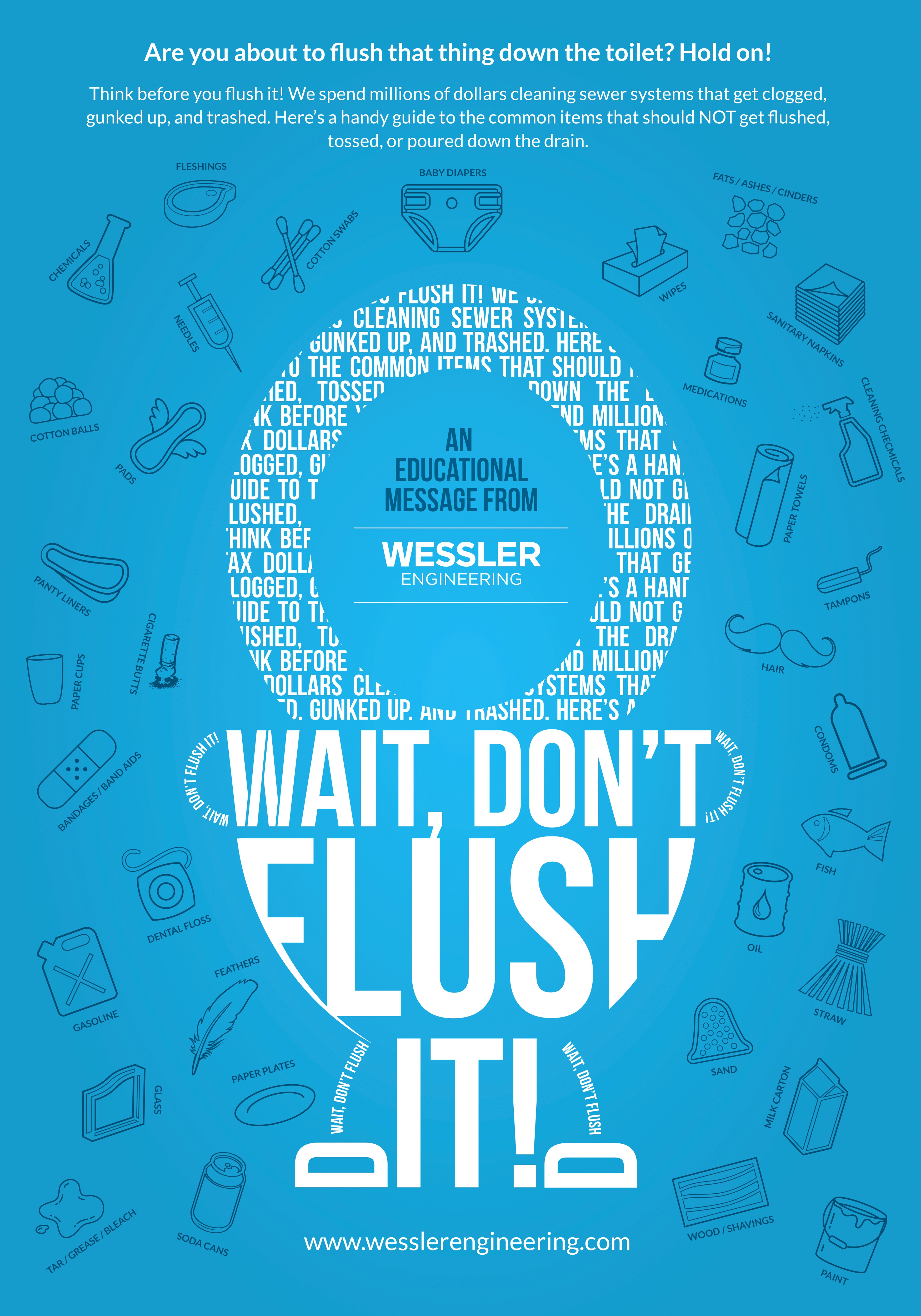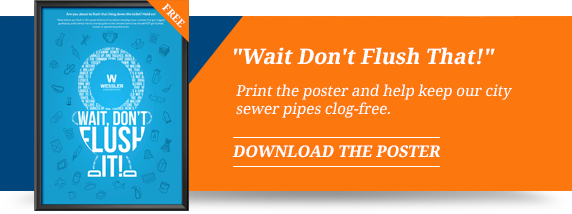Think before you flush. With millions of people at home amid the COVID-19 pandemic and a large focus on ramped up activity in hospitals, we must not neglect other vital resources and infrastructure. While we may be using alternatives to toilet paper, such as baby wipes or cloths, and cleaning more often with disinfecting wipes, it is important to remember what should and shouldn’t go down a drain.

Items marketed as “flushable” simply means it will go down a drain; what it doesn’t mean is that it was designed to break down during the treatment process. Here’s a handy guide to the common items that should NOT get flushed, tossed or poured down the drain. Download our free poster "Wait, Don't Flush It!" to help share this educational message with the public.
Communities spend millions of dollars cleaning sewer systems that get clogged, gunked up and trashed. Think being on septic makes you exempt? Think again (or before you flush 😉). Septic systems are susceptible to the havoc non-approved items can cause. The cost of repairing a septic system typically lies with the homeowner.
Don’t Flush It
- Wipes (flushable and other types) - They have a tendency to build up and do not break down as traditional toilet paper does.
- Paper towels
- Cloth towels
- Unused medications
- Disposable diapers
- Feminine hygiene products
- Cotton balls
- Cotton swabs
- Bandages and bandage wrappings
- Condoms
- Birth control
- Dental floss
- Cat litter
- Cigarette butts
- Hair
- Medical wastes
It may seem obvious that items like diapers and cat litter shouldn't be flushed down the toilet, but these are things we find in sanitary sewer systems. Even small items like cigarette butts don't break down easily and when they gather with enough other small items, plus grease, you have the perfect conditions for costly clogs and super knots in sewer collection systems.
Solids
- Fats
- Ashes
- Cinders
- Sand
- Mud
- Straw
- Metal (including metal shavings)
- Glass
- Rags
- Feathers
- Plastics
- Wood
- Fleshings (trimmings from meat)
- Entrails
- Paper plates or cups
- Milk containers
- Aluminum cans
- Tar
- Sludges
- Scums
Solid fats and meat trimmings should NOT be flushed or put down the drain via your garbage disposal. Not only will they clog up your own household drains and pipes, they will cause problems for your municipal sanitary sewer system. Sludge, scum and fats should be placed into garbage bags and disposed of with your other trash.
Liquids
- Grease
- Oils
- Paint
- Excess dyes
- Cleaning chemicals
- Automotive fluids
- Paint thinners
- Bleach
- Hazardous liquids
- Gasoline
- Kerosene
- Alcohols
Hazardous materials should be disposed of properly and never flushed or poured down household drains or stormwater drains on the street. These materials can end up in rivers and lakes, causing destruction to fish and wildlife. Check with your local recycling center or waste management department to ask where you can safely dispose of these fluids.
Especially in this particularly challenging time, keeping this important information in mind will help keep our “wet” infrastructure operating as smoothly as possible.
Tags

